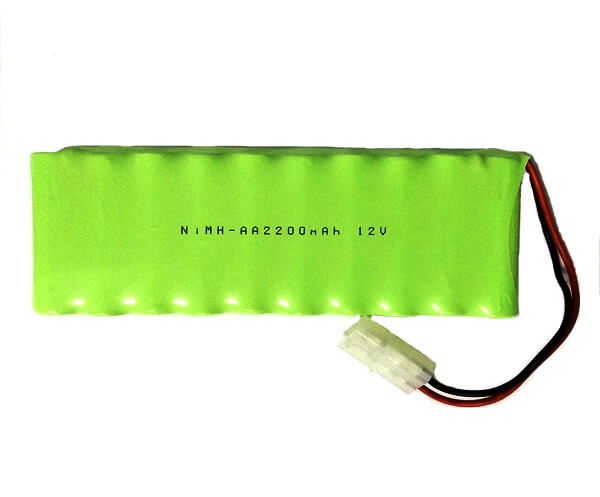The Benefits and Limitations of Ni-MH Batteries
Ni-MH batteries, or Nickel-metal hydride batteries, are an older and widely used type of rechargeable battery. They are commonly used in a range of electronic devices, from cordless phones to digital cameras, and offer several advantages over other types of batteries However, they also have some limitations that must be taken into account. In this article, we will explore the benefits and limitations of Ni-MH batteries, their applications, and their advantages.

Advantages of Ni-MH Batteries:
Ni-MH batteries have several advantages over other types of batteries. One of their primary benefits is their high energy density, which allows them to store more energy than traditional Ni-Cd batteries. This means they can last longer between used charges and can be in a wider range of applications, including high-drain devices like digital cameras and cordless power tools.
Another advantage of Ni-MH Battery Pack is that they are environmentally friendly. Unlike some other battery types, Ni-MH batteries do not contain toxic heavy metals like cadmium, which makes them safer for the environment and easier to recycle. This has led to Ni -MH batteries being used in a range of applications that require a more sustainable power source, such as electric vehicles and hybrid cars.
Finally, Ni-MH batteries have a longer lifespan than many other types of batteries, which makes them a cost-effective option in the long run. With proper care and maintenance, Ni-MH batteries can last for several years, making them a practical choice for many applications.
Limitations of Ni-MH Batteries:
Despite their advantages, Ni-MH battery also have some limitations that must be taken into account. One of the primary drawbacks is their self-discharge rate, which means they can lose up to 20% of their charge per month. This can be a problem for devices that are not used frequently, as the batteries may discharge before they can be used.
Another limitation of Ni-MH batteries is their sensitivity to high temperatures. Ni-MH batteries can lose their charge quickly when exposed to high temperatures, which can be a problem in hot climates. Additionally, Ni-MH batteries can be damaged if they are overcharged, which can shorten their lifespan.
Applications of Ni-MH Batteries:
Ni-MH batteries are used in a wide range of applications, from consumer electronics to hybrid cars. They are commonly used in cordless phones, digital cameras, and portable music players, where their high energy density and long lifespan make them a practical choice.
Ni-MH batteries are also used in hybrid cars and electric vehicles, where their high energy density and low environmental impact make them a popular choice. Additionally, Ni-MH batteries are used in backup power systems, where they can provide reliable power in the event of a power outage.
Ni-MH batteries offer several advantages over other types of batteries, including their high energy density, environmental friendliness, and long lifespan. However, they also have some limitations, such as their self-discharge rate and sensitivity to high drawback temperatures. , Ni-MH batteries remain a popular choice for a wide range of applications, including consumer electronics, backup power systems, and electric vehicles.
评论
发表评论